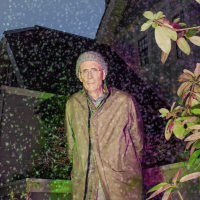 William Gibson is far and away my favorite
William Gibson is far and away my favorite science fiction author. At last count there are fifty articles and interviews linked here at smays.com. This one in the New Yorker, by Joshua Rothman, might be the “best” yet (whatever that means). Like all New Yorker articles, it’s long by today’s standards. I’ve pulled a few excerpts at random.
It was a depressing read for me. In the Gibsonian apocalypse “the end of the world is already here; it’s just not very evenly distributed.”
As the Internet became more accessible, Gibson discovered that he wasn’t terribly interested in spending time online himself. He was fascinated, though, by the people who did. They seemed to grow hungrier for the Web the more of it they consumed. It wasn’t just the Internet; his friends seemed to be paying more attention to media in general. When new television shows premièred, they actually cared.
The advent of the online world, he thought, was changing the physical one. In the past, going online had felt like visiting somewhere else. Now being online was the default: it was our Here, while those awkward “no service” zones of disconnectivity had become our There. […] It didn’t matter where you were in the landscape; you were in the same place in the datascape. It was as though cyberspace were turning inside out, or “everting”—consuming the world that had once surrounded it.
“What I find most unsettling,” Gibson said, “is that the few times that I’ve tried to imagine what the mood is going to be, I can’t. Even if we have total, magical good luck, and Brexit and Trump and the rest turn out as well as they possibly can, the climate will still be happening. And as its intensity and steadiness are demonstrated, and further demonstrated—I try to imagine the mood, and my mind freezes up. It’s a really grim feeling.” He paused. “I’ve been trying to come to terms with it, personally. And I’ve started to think that maybe I won’t be able to.”
